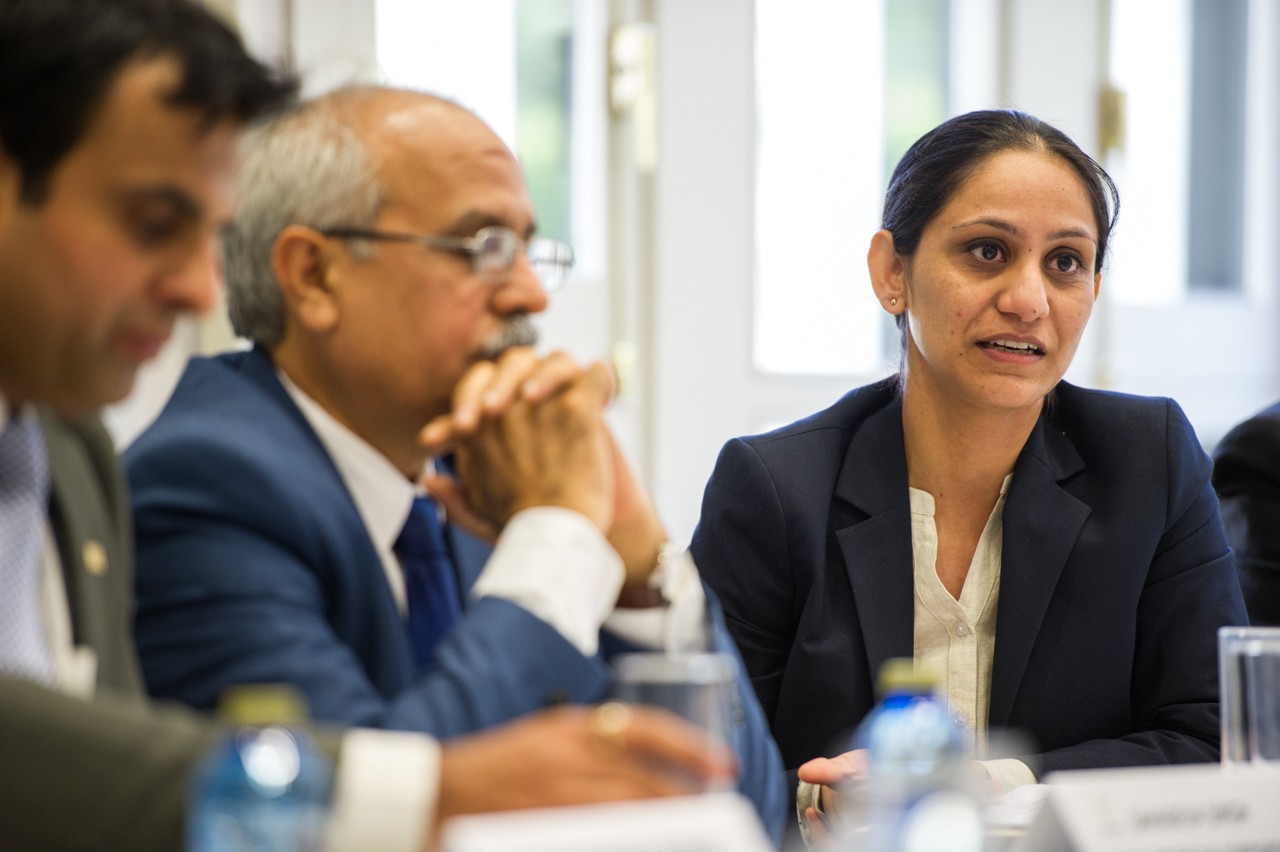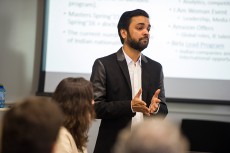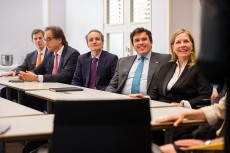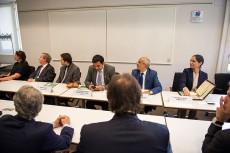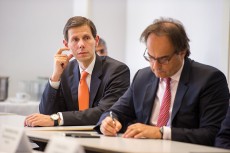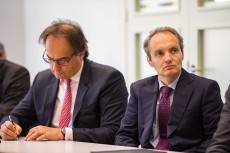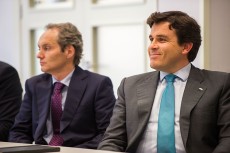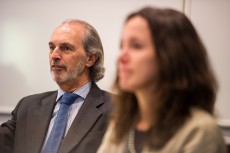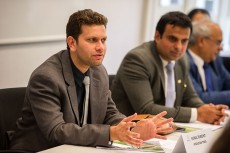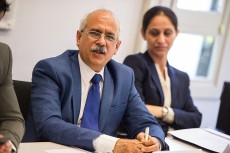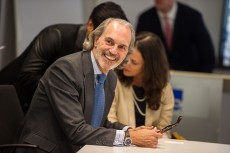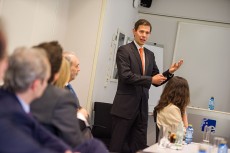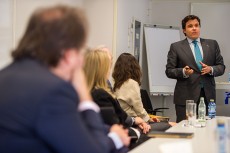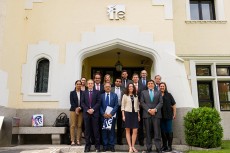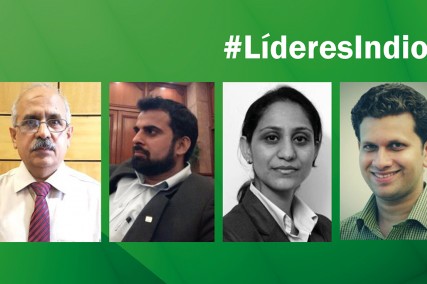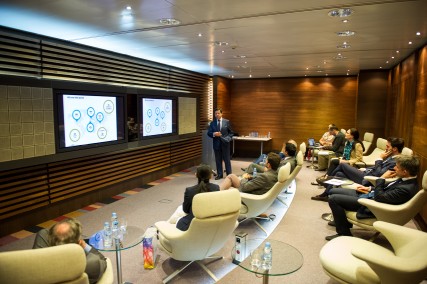Several experts from leading companies in urban development, new technologies and sustainability got together with the participants in the Leaders Programme in order to discuss these issues. The meeting took place at the headquarters of our patron IE Business School, where the delegation was welcomed by Strategic Relations Officer Antonio Montes and the Dean of IE School of Architecture and Design, Martha Thorne.
As an introduction to the concept of smart cities and the changes these cities are bringing about, the IE School of Architecture and Design’s Urban Planning Professor Ricard Frigola gave an analysis of the new challenges of smart cities, which must be built around three principles: public services, information management and sustainable infrastructure.
Dr. Manvendra Deswal summarised the ambitious 100 Smart Cities programme to be implemented over the next few years and the work of the Confederation of Indian Industry, which he represents, as well as its partnerships with several international companies
including Spain’s Indra. Deswal also highlighted an aspect of the 2016 edition of the Indian Leaders Programme in Bilbao and Santander: the emphasis on culture as a means to offer greater access to spaces open to the public.
After the presentations, an interesting debate took place in which the Leaders stressed the need to create plans and systems specifically for India, whose cities are radically different from European cities, especially in terms of mobility and public transport. Ms. Akshima Tejas Ghate was very interested in the speech given by Francisco Rincón as a representative of Siemens, who introduced the concept of resilience in cities as the capacity to endure natural disasters. He also remarked that this concept may be relevant in the case of India, a country with an extensive coastline and a number of large cities by the sea.
The debate ended with an interesting discussion moderated by Shri Sahadeva Singh on the introduction of new technologies in India and their potential effects and benefits. Rafael Ruiz, representative of ARUP, said these technologies could increase the information available about users, contributing to improve urban planning. Dr. Manvendra Deswal also made a positive remark on the quality of services in Spain, which he was able to experience first-hand during the visit, and which he considers to be “very important” with a view to internationalisation.
5th Indian Leaders Programme report.
Indian Leaders profiles.
More images in the Gallery.
